WGS Study Abroad
Providers offer study centers designed for American students along with direct enrollment options at local institutions for students to complete courses. Many programs also include internship placements and independent research as well as local orientation programs and educational excursions.
Each program may have specific eligibility requirements in regards to GPA, language proficiency, and/or course prerequisites that differ from those of PC. It is the responsibility of the student to carefully research these requirements prior to application.
Providence College works with approved study abroad program providers that can be found in over 40 countries around the world. From application management to onsite support and transcript evaluation, these organizations administer all aspects of the study abroad process. Think of them as intermediaries between students and the host country and institution.
Please see the Providence College Global Education Study Abroad page for more details.
Women’s and Gender Studies Majors are ENCOURAGED to take the programs listed below, but please reach out to your advisor if you are interested in a different program.
WESTERN AND EAST-CENTRAL EUROPE
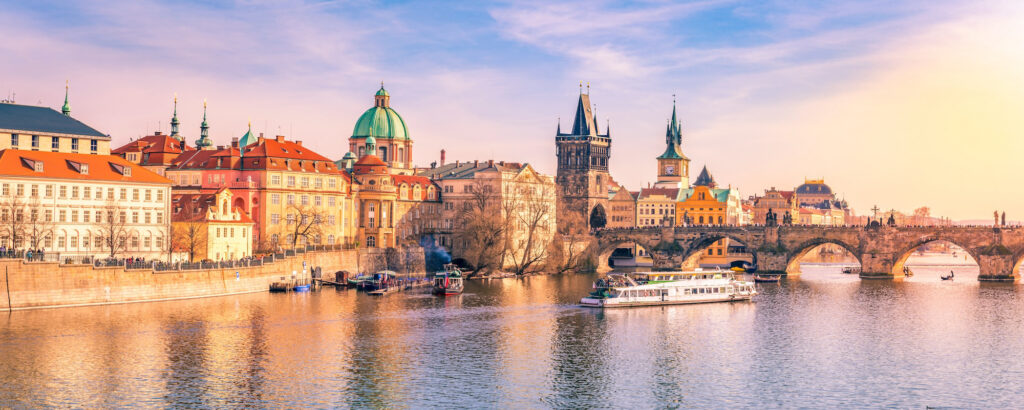
Women’s and Gender Studies in Europe (Carleton Antioch College)
Carleton College’s Women’s and Gender Studies in Europe (WGSE) program focuses on women’s, feminist, and LGBTQ+ issues across Western and East-Central Europe. Participants study feminist and queer theory, cross-cultural feminist methodology, and European situated feminisms and conduct independent research projects while traveling to the Netherlands (Utrecht and Amsterdam), Germany (Berlin), and the Czech Republic (Prague and Olomouc).
Program Highlights
- Exploring WGS issues in the Netherlands, Germany, and the Czech Republic comparatively.
- Participating in a week-long NOISE workshop, organized by Utrecht University’s Gender Studies and primarily attended by Master’s WGS students from European institutions.
- Moving beyond Western frameworks and learning about gender regimes and history of women’s emancipation in the former Eastern European bloc.
- Designing and carrying out independent research on an individualized topic within the WGS field. Independent Student Projects will combine in-person and remote interviews and research.
One of the principal goals of the program is a comparative exploration of Europe in its heterogeneity. The program’s focus is on bringing the margins to the center. Participants explore the diversity that is Europe from the perspectives of women and sexual and ethnic/racial minorities. Students learn about the historical and current day experiences of the citizens of Jewish, Afro-German, and Turkish backgrounds in Germany. The topics are addressed both through scholarly inquiry and situated empirical experience throughout the semester, framed through our discussions of post-colonial, feminist, and queer theories.
What does it mean to realize that some goals of the feminist second wave, such as reproductive rights, accessibility to higher education for women, or equal employment opportunities, were argued and achieved in much of the former Eastern bloc as part and parcel of the socialist doctrine?
How does the story of LGBTQ+ activism unfold in a social context where homosexuality and trans*sexuality have been discussed in a medical/sexological framework until very recently?
These topics are framed through our discussions of post-colonial, feminist and queer theories, and they are explored through students’ self-designed field research.
Program Structure
Following an orientation to the program, WGSE participants begin a comparative study of Women’s and Gender Studies topics and issues in Utrecht/Amsterdam, Berlin, and Prague. Students come face to face with leading theories in WGS and have the opportunity to test their knowledge while working on their independent research projects. Participants attend lectures and take seminars with Director Iveta Jusová, PhD, as well as with NGOs, artists, activists, and professors from affiliated European universities, including Utrecht University, Humboldt University, Charles University, and Jagiellonian University.
Weekend excursions take students to the Texel Island (Netherlands), the Bad Saarow thermal mineral spa (Germany), and to Olomouc and Javoricske caverns in Moravia (the Czech Republic).
COURSES
Students participating in Women’s and Gender Studies in Europe enroll in the four required courses, earning the equivalent of 16 semester credits upon successful completion. Course credits are awarded in Carleton College academic credits. The student’s home institution is responsible for converting the Carleton credits.
GWSS 243: Situated Feminisms: Socio-Political Systems and Gender Issues Across Europe
This course examines the history and present of feminist and LGBTQ+ activists across Western and East-Central Europe. We study the impact of the European colonial heritage on the lives of women and sexual/ethnic minorities across European communities, as well as the legacies of World War II, the Cold War, and the EU expansion into Eastern Europe. Reproductive rights, LGBTQ+ issues, “anti- genderism,” sex work, trafficking, and issues faced by ethnic minorities are among topics explored. These topics are addressed comparatively and historically, stressing their ‘situated’ nature and considering their divergent sociopolitical national frameworks.
GWSS 244: Cross-Cultural Feminist Methodologies
This course explores the following questions: What is the relationship between methodology and knowledge claims in feminist research? How do language and narrative help shape experience? What are the power interests involved in keeping certain knowledges marginalized/subjugated? How do questions of gender and sexuality, of ethnicity and national location, figure in these debates? We will also pay close attention to questions arising from the hegemony of English as the global language of WGS as a discipline, and will reflect on what it means to move between different linguistic communities, with each being differently situated in the global power hierarchies.
GWSS 325: Continental Feminist, Queer and Trans* Theories
Addressing the impact of Anglo-American influences in Women’s, Gender & Sexuality Studies, this course examines European, including East-Central European, approaches to key gender and sexuality topics. It raises questions about the transfer of feminist concepts across cultures and languages.
Some of the themes explored include nationalism and gender/sexuality, gendered dimensions of Western and East-Central European racisms, the historical influence of psychoanalysis on Continental feminist theories, the implications of European feminisms in the history of colonialism, the biopolitics of gender, homonationalism, as well as Eastern European socialist/communist theories of women’semancipation.
GWSS 391: Independent Field Research in Europe
This is a self-designed project, and the topic will be determined by each student’s research interests. It will build on readings and work by European women and/or sexual minorities, feminist & queer theory, cross-cultural theory and (if applicable) principles of field research. It should be cross-cultural and comparative, and ideally should involve field work. Drawing on skills developed in feminist theory and methodology seminars, students select appropriate research methods and conduct sustained research in two of the countries visited. The progress of each project will be evaluated regularly in relation to parameters established in conjunction with the Program Director.
Drawing on skills developed in the feminist and queer theory and methodology seminars, students will select appropriate research methods and will conduct a sustained research project based on resources located/developed by the student in two of the countries visited. The progress of each research project will be evaluated at regular intervals in relation to parameters established in conjunction with the Program Director (or an external project supervisor if applicable).
To request previous course syllabi, email global@carleton.edu.
DENMARK | Copenhagen
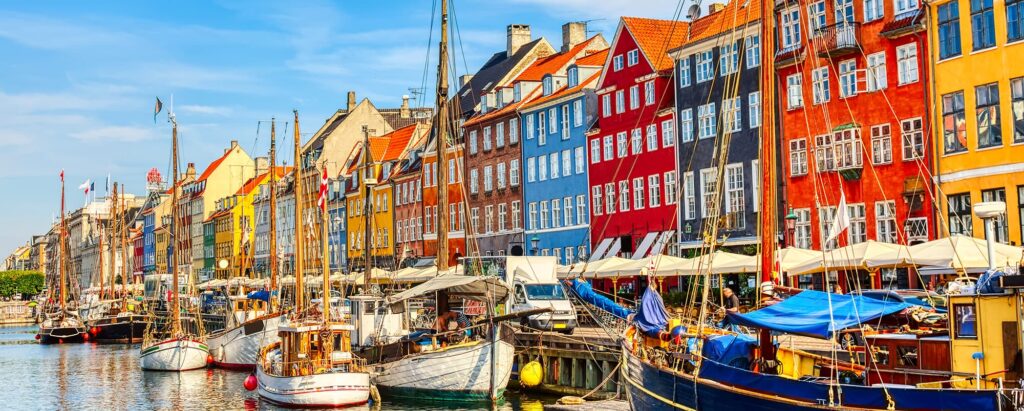
Prostitution and the Sex Trade (DIS Copenhagen)
Enjoy the freedom of choice
Build your semester by choosing a Core Course from 27 Academic Programs and pick elective courses to build on your academic focus or explore other disciplines. You also have the choice of six diverse housing options to ensure the best fit for you.
Engage in high-impact courses
DIS courses challenge you to examine issues from various perspectives. Learn how concepts and issues are perceived, lived, and theorized in Europe; and reflect on the cultural norms and values that shape you.
Build your knowledge in new settings
Turn Copenhagen into your classroom on local Field Studies. Hone your skills in research or labs, studio, practicum, or workshops.
Explore Europe on Study Tour
Travel with your class and faculty on two course-integrated Study Tours in Europe. Visit important sites and meet with local experts who add their perspectives to your knowledge of the field.
COURSES
Why does the state decide how consenting adults use their bodies? Meet sex workers, law makers, and activists to hear conflicting views on sex for sale.
Once you choose the right Core Course for you, build the rest of your course load with electives from across 70 disciplines!
Prostitution and the Sex Trade in Europe
- Course type: Core Course
- Fall/Springsemester
In this course, we begin with a focus on prostitution and sex work in Europe as a starting point, then expand to countries globally. Along the way, you will gain insight into historical, cultural, legal, and political aspects of prostitution and examine current and future consequences of the varying national approaches across Europe. You also examine prostitution from different perspectives ranging from that of sex workers, customers, anti-trafficking advocacy groups, law enforcement officials, and politicians.
Syllabus A section- Spring 2024
Go to syllabus
Syllabus B section- Spring 2024
Go to syllabus
ENGLAND | Bath
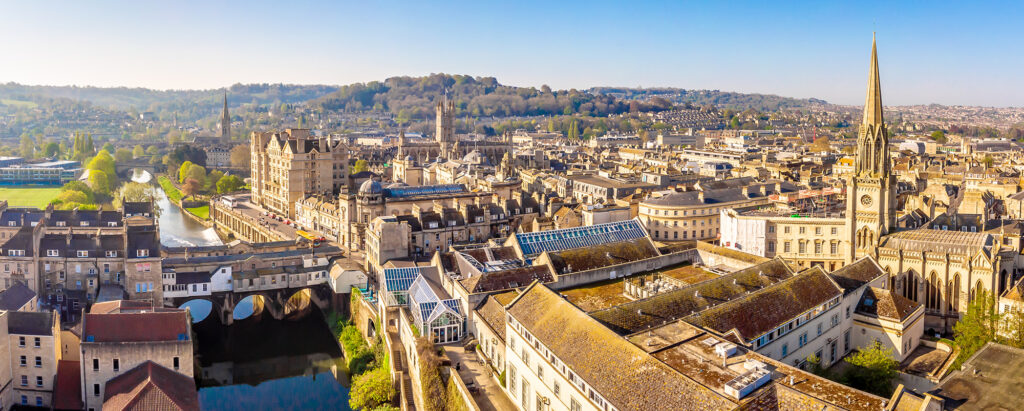
Advanced Studies in England (ASE)
Established in 1987, Advanced Studies in England (ASE) provides the opportunity for highly motivated undergraduates from US institutions of Higher Education to undertake a study abroad experience at the highest level.
At the heart of this experience is an academic and cultural emphasis: challenging, rigorous courses are complemented by a social programme offering each student the opportunity to develop their cultural awareness and experience.
The World Heritage city of Bath
Our study centre is situated at the heart of the breathtakingly beautiful, eighteenth-century city of Bath, 90 minutes west of London. All students are housed in attractive properties in historic areas of the city centre, within walking distance of the Roman Baths, the Abbey, galleries, museums, and an array of cafés, restaurants and pubs.
Academic excellence
Established in 1987, Advanced Studies in England (ASE) is proud of its reputation for academic excellence. Teaching takes place in small seminar groups (maximum 15 students) and one- and two-on-one tutorial-style classes. Courses are taught by highly-qualified British faculty, many from the University of Oxford, and the Programme enjoys ongoing academic ties with University College, Oxford where our Academic Adviser Dr Andrew Bell – who assists in the appointment of ASE’s faculty – is Senior Tutor.
Residentials and study trips
We aim to give all our students an insider’s view of Britain, its history, landscape and culture. Each semester includes a week-long residential at University College, Oxford and a stay in Stratford-upon-Avon (where we attend performances by the world-renowned Royal Shakespeare Company), alongside organised day trips to some of the hidden rural treasures of England and Wales. Many of our seminars also include study trips to course-connected locations and events.
Cultural immersion
A carefully structured social and cultural programme actively encourages students to immerse themselves more fully in the life of the city. All ASE students have Associate Membership of the Students’ Union at Bath Spa University, and a Student Affairs team organises weekly events and helps facilitate links with local volunteering agencies, clubs, sports teams and societies.
ASE’s Certificate of Cultural Enrichment structures and encourages cultural integration.
COURSES
There are four main ways to make up your academic workload for the ASE semester.
Students choose one of the following combinations of courses, each recommended for a total of 16 credits:
- Seminars only: choose four seminar classes
- The Advanced Tutorial Programme: one tutorial plus three seminar courses
- The Education Programme: a weekly placement in a local primary or secondary school, plus an education-specific seminar and two other seminar courses
- The Internship Programme: a weekly internship placement plus three seminar courses
Students who wish to apply for any other combination of four courses (for instance, a tutorial plus an internship and two seminars) are asked to write, making a persuasive case, to the Director of Studies. Such requests are judged on a case-by-case basis.
Note that ASE can only recommend credit. It is each student’s responsibility to make certain that appropriate credit transfer at their home college has been approved before leaving for England.
ITALY | Florence

Business, Arts, Humanities, Italian Language, and Culture in Florence (API)
Experience an extraordinary academic and cultural journey at Lorenzo de’ Medici in Florence! Immerse yourself in the cradle of the Renaissance, where art, history, and innovation intertwine. You can choose from a wide array of arts, business and humanities courses taught in English, or study Italian language in a city brimming with inspiration and beauty. Engage with passionate faculty and expand your knowledge in diverse fields while earning valuable academic credit towards your degree.
- Breathtaking scenery and stunning architecture
- Incredible sites, including the Uffizi Museum, Pitti Palace, the Accademia (home to Michelangelo’s “David”), and the iconic Duomo
- The birthplace of the Renaissance
- Large international student community
- Exceptional Italian cuisine
- A shopper’s paradise
- 45-minute train ride to the beach
ACADEMICS
Participants will earn 24 – 32 U.S. credits during this program. Lorenzo de’Medici: The Italian International Institute, Florence has 317 courses available in the catalog during the Academic Year term. Please see the courses below as a starting point and click ‘View More Classes’ to see the full catalog if you want to continue your search.
Students will choose 4-5 courses, earning 12-16 US credits. Students who choose above the Elementary level of Italian must complete a placement exam upon arrival to verify their level of proficiency. Courses can fill up quickly and no course is guaranteed. It is suggested that students apply early for greater course availability. Pay close attention to prerequisites and class times in order to avoid conflicts.
20th Century Design and Architecture
LANGUAGE: ENGLISH
An introduction to the tools and methods for understanding and recognizing choices and style in architectural design, in both interior and exterior settings. We explore the work of the 19th and early 20th-century masters (up to c. 1960) who expressed their talents and aesthetic vision from the small scale of objects and interiors to the grand ideas of entire buildings, neighborhoods and cities. Given the close relationship between interior design, object design and architecture, we examine the history of these three fields beginning with the Industrial Revolution. How did politics, economics and scientific and technological discoveries impact society, art, and architecture? What drove innovation in materials and aesthetics in the past, and how has this process changed in today’s world?
20th Century Graphics and Illustration
LANGUAGE: ENGLISH
The history of graphic design and illustration, and their interpretation in different cultures from the late 1800s to the present. We investigate the origins of modern graphic design in Europe, Russia, and in the United States, and how it built on the ancient visual culture of the Near and Far East, Europe, and the Americas. An in-depth study of the graphic arts, including signs, letters, drawn lines, colors in a painting, and dots in a photograph, and how all of these can form images and communicate ideas.
3-Hour Italian Language Advanced 1
LANGUAGE: ITALIAN
In this level we focus on developing the ability to manage conversations and collaborative strategies, and correctly use a wider linguistic range to create clear, logical, and effective texts. By courses end, students are able to take an active part in conversations, explain and justify their points of view, and give clear presentations on a range of subjects related to their interests in both spoken and written form. Notes: check exact requirements in catalog.
3-Hour Italian Language Advanced 2
LANGUAGE: ITALIAN
We develop the ability to understand and interact with prolonged conversations and complex, specialized texts. Students gain the ability to use language flexibly in both social and professional contexts, recognizing and using a wide range of idioms and acquiring a better command of shifts in linguistic register.
3-Hour Italian Language Elementary 1
LANGUAGE: ITALIAN
For beginning students with no previous knowledge of Italian. In this first of six levels, we explore and familiarize ourselves the basics of the language, developing vocabulary and grammar skills to deal with everyday situations and express ourselves in both the present and past tenses. By courses end, students are able to use and understand a range of words and basic phrases and interact in straightforward situations to resolve their most pressing needs.
3-Hour Italian Language Elementary 2
LANGUAGE: ITALIAN
We consolidate our knowledge of the basic structures of the Italian language and move on to acquire new skills and techniques, such as the ability to describe personal background and immediate environment, express wishes and talk about future plans, and respond to simple direct questions or requests for information. By courses end, students are capable of understanding and participating in simple exchanges of information on familiar activities, and using short phrases to describe people and living conditions.
MEXICO | Cuernavaca
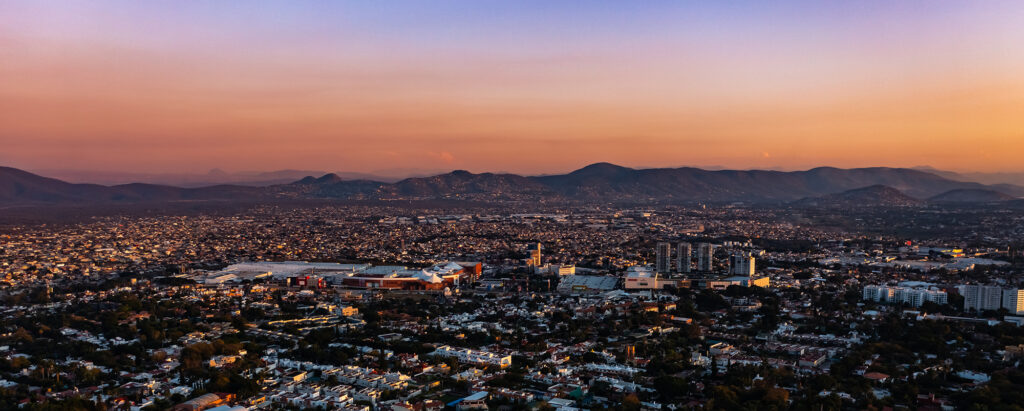
Migration and Social Change (Arcadia)
Based in Cuernavaca, the capital of the Mexican state of Morelos in central Mexico, these exciting semester programs offers coursework in Intercultural Communication and Media (for fall semester students) or Migration and Transnationality, along with liberal arts options (for fall and spring students).
Fall program students can participate in the Communication and Media Studies concentration of Migration and Social Change in Mexico, which equips you for the challenge of today’s media. A focus on socially conscious, responsible journalism is garnered through meeting with traditionally marginalized by society, including migrants, deportees, immigrant returnees from the US, indigenous people, women, LGBTQ people, and others.
Fall and Spring students can choose a concentration from the Liberal Arts, Migration, and Social Change program. Concentrations include Migration Studies; Gender, Sexuality, and Women’s Studies; Liberal Arts; and Spanish Language.
- Customizable, with a wide array of course choices, supported by experiential learning which enhance your understanding of complex cultures and intercultural communication.
- Includes a homestay in an indigenous Nahua community, and homestay placement while in Cuernavaca
- Program includes most meals.
- A wide array of program excursions focus on the foment of positive social change and the understanding of the forces of globalization, migration, and transnational identity.
Migration & Social Change Program
Study Spanish and learn about migration and transnationality from Mexicans who are organizing for positive social change in their communities.
On this unique program, students have the opportunity to learn from a diverse set of Mexicans about contemporary issues in Mexico. The program aims to help you understand the connections between migration and transnationality by learning directly from diverse communities that are organizing for positive social change around issues of race and colorism, ethnicity, socio-economic class, gender, sexuality, religion, and the environment.
Depending on your interests, you can select courses with a special focus on: Liberal Arts, Migration Studies, Spanish Language, or Gender, Sexuality, and Women’s Studies. If you do not have a particular concentration, you can choose a cross-section of courses.
This program is open to everyone – Augsburg students, as well as undergraduate students from any other institution. It is available in both fall and spring semesters.
Learn About:
- The complexity of cultures and intercultural communication within and between cultures.
- The relationship between migration and transnational identities and cultures.
- Communities that are responding to the forces of globalization and migration.
- Fomenting positive social change around issues of race, colorism, ethnicity, socio-economic class, gender, sexuality, religion, politics, and the environment.
Meet With:
- Academics and activists
- Nahua Indigenous community leaders regarding their history, culture, and spirituality
- Nahua traditional healers
- Mexican students at a university in Cuernavaca
- Central American migrants at a migrant shelter in Mexico City
- Former migrants and family members of emigrants to the U.S. during a week-long rural homestay in a community heavily impacted by emigration to the U.S.
- Political and economic officers from the U.S. embassy in Mexico City
- Faith-based organizations and individuals who are fighting for LGBTQ+ rights and sexual and reproductive rights
- LGBTQ+ activists, including a drag queen and lesbian singer and songwriter
- Feminist scholars and grassroots activists
Students take a full course load on the program (16 credits, typically four or five courses). Your coursework is in English, there is no Spanish language prerequisite. View the Course Syllabi any time for more details on each course. This program offers four concentrations to help you select courses that match with your academic interests or major/minor.
COURSES
Required Course:
- Intercultural Communication (Communication 329) – 4 credits.
In the required course, students will earn their Global Competence Certificate (GCC) which is an excellent addition on any resume upon graduation! The GCC, internationally-known and respected, helps you integrate your study abroad experience with vital knowledge that will help you make a positive impact on the world.
Additional Course Options By Concentration
Please note that you can mix and match if you are not in one particular concentration. Choose up to three additional courses after your required intercultural course:
(Concentration 1) Migration Studies
| Course Title | Department | Credits | Satisfies Requirements at Augsburg |
|---|---|---|---|
| (Im)Migration, Gender & Social Change | POL 357/WST 352 | 4 cr | satisfies a Social and Behavioral Sciences requirement at Augsburg |
| Undocumented, Ecofeminist & Queer: Contemporary Latin American Liberation Theologies | RLN 344/WST 324 | 4 cr | satisfies Search for Meaning II and Humanities requirements at Augsburg |
| Independent Study or Internship (for students with advanced Spanish) | several available | 4 cr |
(Concentration 2) Gender, Sexuality, and Women’s Studies
| Course Title | Department | Credits | Satisfies Requirements at Augsburg |
|---|---|---|---|
| Contemporary Latin American Women: Texts and Voices | SPA/WST 335; only in Spanish | 4 cr | none |
| (Im)Migration, Gender & Social Change | POL 357/WST 352 | 4 cr | satisfies a Social and Behavioral Sciences requirement at Augsburg |
| Undocumented, Ecofeminist & Queer: Contemporary Latin American Liberation Theologies | RLN 344/WST 324 | 4 cr | satisfies Search for Meaning II and Humanities requirements at Augsburg |
| Queer History in Latin American | HIS/WST 388 | 4 cr | none |
(Concentration 3) Liberal Arts*
| Course Title | Department | Credits | Satisfies Requirements at Augsburg |
|---|---|---|---|
| Environmental Biology | BIO 118 | 4 cr | satisfies natural science w/lab requirement |
| (Im)Migration, Gender & Social Change | POL 357/WST 352 | 4 cr | satisfies a Social and Behavioral Sciences requirement at Augsburg |
| Undocumented, Ecofeminist & Queer: Contemporary Latin American Liberation Theologies | RLN 344/WST 324 | 4 cr | satisfies Search for Meaning II and Humanities requirements at Augsburg |
| Independent Study or Internship (for students with advanced Spanish) | several available | 4 cr | |
| Latin Dance | WEL 119 | 1 cr | satisfies Recreational Wellness requirement at Augsburg |
| Spanish: Beginning to Advanced Spanish (See the list under the Spanish Concentration | various | 4 cr | satisfies Modern Language 1 & 2 requirements at Augsburg |
(Concentration 4) Spanish Language**
**(any/all of these Spanish courses can be taken by any student at any time)
- Beginning Spanish I & II (SPA 111, SPA 112)
- Intermediate Spanish I & II (SPA 211, SPA 212)
- Spanish for Health Care Professionals (SPA 218)
- Business Spanish (SPA 220)
- Spanish for Heritage Speakers I & II (SPA 225, SPA 335)
- Intermediate Conversation & Composition (SPA 311)
- Conversations in Cultural Context (SPA 316)
- Contemporary Mexican Literature (SPA 334)
- Contemporary Latin American Women: Texts & Voices (SPA 335)
- Mexican Civilizations & Cultures (SPA 337)
- Latin American Literature (SPA 356)
- Internship (SPA 399)
- Advanced Conversation & Composition (SPA 411)
NETHERLANDS | Amsterdam
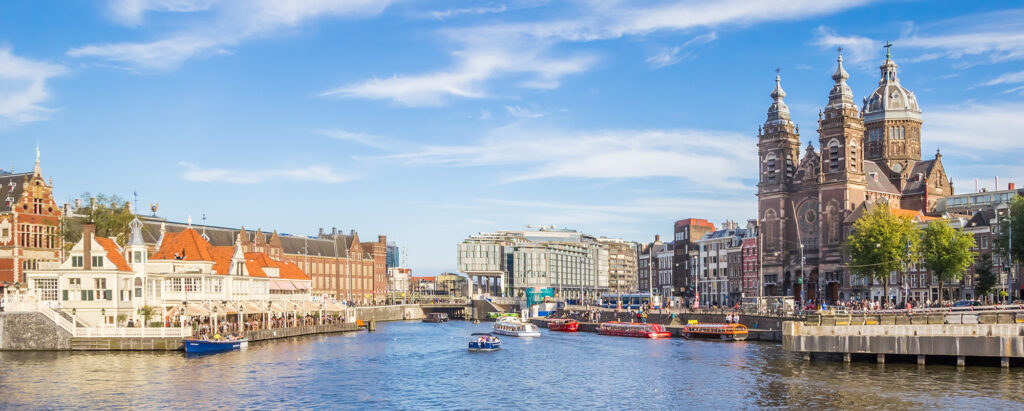
Netherlands: International Perspectives on Sexuality and Gender (SIT)
WHY STUDY ABROAD IN THE NETHERLANDS?
Famous for its Red Light District, canals, and bicycles, Amsterdam is also an ideal city in which to explore the intersection of gender and sexuality with race, class, and religion. Meet with activists, academics, and professional sex workers and visit key places like the International Gay and Lesbian Archives and Information Center. In Utrecht and other Dutch cities, speak with sex educators, advocacy groups, and community organizers. Get a Muslim perspective on gender and sexuality during a two-week excursion to Morocco.
HIGHLIGHTS
- Learn from experts in Amsterdam and other Dutch cities.
- Choose from a novice or advanced academic track.
- Volunteer with an NGO or grassroots organization in the Netherlands.
- Discuss sex workers’ rights at Amsterdam’s the Prostitution Information Center.
- Visit Moroccan cities of Rabat, Marrakech, and the House of Memory in Essaouira.
PREREQUISITES
Previous college-level coursework or background in sexuality or gender studies, as assessed by SIT for the novice track. For the advanced studies track, students must have a major or minor with demonstrated coursework in women’s studies, sexuality, gender, or queer studies.
ACADEMICS
PROGRAM LEARNING OUTCOMES
Upon successful completion of the program, students will be able to:
- Evaluate the political impact of Dutch policies and practices concerning LGBTQI+ education, sexual education, sex work, and the promotion of sexual health.
- Demonstrate introductory Dutch language skills.
- Explicate the positionality of the researcher and subject, and the ethics of work with human subjects.
- Apply critical theories in the fields of LGBTQI+ and queer studies, feminist studies, and sexuality studies at an introductory level or apply critical theories in the fields of LGBTQI+ and queer studies, feminist studies, and sexuality studies at an advanced level to produce research papers.
- Explain the histories of post-colonial and labor-migration communities living in the Netherlands.
- Explain how the intersection of gender and sexuality, religion, race, ethnicity, place of origin, and class determines personal identity.
- Synthesize the learning acquired on the program in an Independent Study Project or internship paper.
COURSES
Students choose between the following two thematic seminars, one for novice learners and one for advanced.
Theory and Application of Feminist, LGBTQI, and Queer Studies – syllabus
(GEND3000 / 3 credits)
Queer theory developed in the 1990s, mostly in the U.S., as an outgrowth of feminist and gender studies. Building on the work of the structuralists (particularly linguistic structuralism), the post-structuralist deconstructionists, and scholars from all fields, turned intellectual lenses onto understudied populations. It has grown from what was essentially the study of hetero- and homosexuality into a more far reaching theoretical expression of liminal spaces and what can be considered abnormal. This course, suitable for students who are new to queer and feminist theory, examines the crucial principles of queer theory, particularly as they play out in the Dutch and broader European context. We will engage with fundamental queer and feminist ideas, and explore how they relate to our city, our country, and our continent.
OR
Advanced Theory and Application of Feminist, LGBTQI, and Queer Studies – syllabus
(GEND 3500 / 3 credits)
Queer theory developed in the 90s largely to analyze the gay community but has grown into something so much more. So much more, in fact, that is seems unmanageable. It is amorphous, its boundaries so fungible that they seem to disappear. Sometimes it gets desperately, vexingly hard to nail down what queer theory is. This course, suitable for students who have a solid grounding in queer theory, uses the lens of queer to explore these frustratingly elusive liminal edges of the field. We also explore some neighboring states, like trans, disability, and postcolonial studies in the Dutch/ European context. We aim to understand not only the theoretical possibilities, but also the lived experience, of the populations under study.
Migration, Gender, and Sexuality – syllabus
(GEND3005 / 3 credits)
The course examines gender and sexuality in the context of post-colonial and post-migration subjectivities in the Netherlands and around the globe. Integrating lectures, field visits to museums and grassroots organizations, readings, and reflection sessions, the course will focus on the international aspect of the overarching topic: migration, international issues, transnational encounters, postcolonial and postmigration afterlives. During a two-week excursion to Morocco, students study the interaction between Islam, gender relations, and sexuality in a predominantly Muslim country. The excursion and the lectures will allow students to draw a comparative understanding of how conceptions of gender and sexuality are constructed across cultures and societies. This course particularly prepares students for their two-week excursion to Morocco.
Dutch – syllabus
(DUTC1003 / 3 credits)
This course focuses on acquiring a working knowledge of the Dutch language related to sexuality and gender and to everyday life in the Netherlands. Students are almost always at the beginner’s level and during the semester acquire a basic understanding of Dutch, a vocabulary that is related to the program’s themes, and basic grammar. At the end of the course, most students are able to read news items and short articles in the Dutch language.
Research Methods and Ethics – syllabus
(ANTH3500 / 3 credits)
This seminar introduces students to the conceptual and practical tools essential to forming constructive relationships with organizations and/or individuals from other cultures, particularly those required for completing an academic project in the cultural context of the Netherlands. The course enhances students’ skills at building a network; initiating purposeful dialogue in the cultural context of the Netherlands; gathering, recording, and analyzing primary data; and writing an academic report. The course pays particular attention to the ethics of working, researching, and living as a cultural guest. The class situates these ethical issues specifically as they apply within the cultural context of the Netherlands and the program’s critical global issue: identity and human resilience. The course prepares students for their independent study project, and also gives students the intellectual tools to move about the world, learning and growing in an ethical manner.
In addition to taking the above courses, students will also need to enroll in one of the following two courses:
Internship and Seminar – syllabus
(ITRN3000 / 4 credits)
This seminar consists of a four-week internship with a local community organization, research organization, business, or international NGO in the Netherlands. The aim of the internship is to enable students to gain valuable work experience and enhance their skills in an international work environment. Specifically, students will conduct an internship in the context of gender and sexuality issues in the Netherlands, and a focus will be on linking internship learning with the program’s critical global issues of migration, identity, and resilience. The seminar includes regular reflection and assessment meetings with the academic director or internship coordinator to review the progress of the internship and learning associated with the internship experience. Students complete a substantial academic paper in which they process their learning experience on the job, analyze an issue important to the organization, and/or design a socially responsible solution to a problem identified by the organization. Students also conduct an oral presentation of their internship experience and findings.
Previous internships have involved:
- Preparing exhibitions and doing research at the International Gay and Lesbian Archive and Information Center
- Providing support work at Fite Qlub, a multidisciplinary platform operating from a queer, intersectional and decolonial perspective
- Helping break the stigma at Dikke Vinger, a radical social activist foundation for and by fat people working towards a society in which fat people can live equal lives
- Contributing to equality with regards to access to water and sanitation for women and girls worldwide at Simavi
- Researching and writing Wikipedia entries about female role models, artists, and scientists and about feminist organizations or gender equality at Atria Knowledge Institute for Emancipation and Women’s History
- Supporting journalistic and educational projects at Stitching Inclusief
- Creating content and providing social media support for TRANS Magazine (physical and digital), a publication by and about trans* people
- Helping out at one of Amsterdam’s feminist and queer festivals
- Coordinating events at We Are Queer, a gym and coaching platform especially for people who identify as LGBTQIA+
OR
Independent Study Project – syllabus
(ISPR3000 / 4 credits)
The last four weeks of the semester will be devoted solely to the ISP, during which time you will pursue original research on a topic you choose that is related to the program’s theme. The ISP is most often conducted in Amsterdam, but another location is possible as long as it is relevant to the project. Sample topic areas: negotiating religion and homosexuality; interracial relationships in the Dutch postcolonial context; multicultural approaches to sex education; black feminist activism in the Netherlands; Dutch-Moroccan women’s conceptions of virginity; gay men and their experiences with HIV testing; vernacular expressions of women of color. Please note that this program does not permit research that requires the active input of sex workers.
Sample ISP topic areas:
- Negotiating religion and homosexuality
- Interracial relationships in the Dutch postcolonial context
- Intergenerational dating strategies
- Black feminist activism in the Netherlands
- Dating strategies of older lesbian women in the Netherlands
- Multicultural approaches to sex education
- Female body images in media and their effects on women’s self-perception
- Perceptions of virginity among young lesbian women
- The role of Afro-Surinamese women in community activism in Amsterdam Bijlmer
- Identity and belonging among male gay Muslim migrants and refugees
- Family life among same-sex couples
Browse this program’s Independent Study Projects / undergraduate research.
SWEDEN | Stockholm
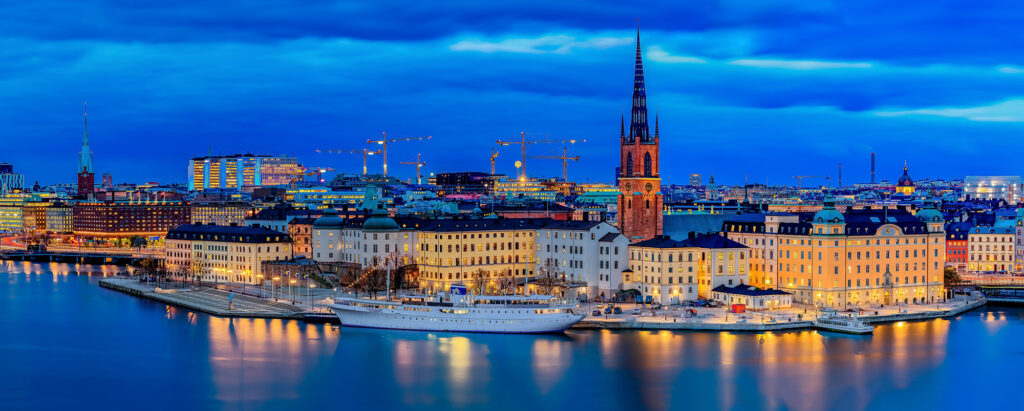
Gender and Sexuality Studies (DIS Stockholm)
Your Story With DIS
Enjoy the freedom of choice
Build your semester by choosing a Core Course from 11 Academic Programs, and pick elective courses to build on your academic focus or explore other disciplines. You also have the choice of four diverse housing options to ensure the best fit for you.
Housing options at DIS Stockholm
Engage in high-impact courses
DIS courses challenge you to examine issues from various perspectives. Learn how concepts and issues are perceived, lived, and theorized in Europe; and reflect on the cultural norms and values that shape you.
Sweden is the world’s most gender-equal country, with affirmative action policies, a ‘gender-responsive’ national budget, and a firm commitment to LGBTQ+ rights.
ACADEMIC PROGRAM
Is This Program For You?
It’s a good fit if you study:
- Gender Studies
- Anthropology
- Sociology
- Human Rights
Some Fun Facts About Gender Equality in Sweden
- Sweden is the first country in the world to replace the term ‘maternity leave’ with ‘parental leave,’ where parents can share 480 days between them
- The gender-neutral term hen is an official word in the Swedish dictionary and is widely used and recognized across society
Once you choose the right Core Course for you, build the rest of your course load with electives from across 48 disciplines!
Core Course
Gender, Sexuality, Race, and Equality in Scandinavia
- Fall/Springsemester
- 3 Credits
This course explores how concepts of gender, bodies, sexuality, race, and migration intersect in current debates about changing family structures, children’s rights, and new ethical dilemmas. We explore recent initiatives discussed in Swedish media and worldwide, including a gender-neutral approach to raising children, recognition of the gender-neutral pronoun “hen” in the Swedish dictionary, Sweden’s first LGBTQ-certified pool, and implementation of a norm-critical approach to teaching and learning. We follow public debates on various burning issues and compare and reflect on the differences observed between the United States, Sweden, and Scandinavia. We examine norms and “traditional” ways of thinking about gender, equality, and sexuality from an intersectional perspective.
Syllabus – Spring 2024
Abigail T. Brooks, Ph.D.
Department of Women’s and Gender Studies Director / Associate Professor of Women’s and Gender Studies, and Sociology
Library LL 13
401.865.2923
wgs@providence.edu
Kiaina Gomez
Women’s and Gender Studies Administrative Coordinator
Library LL 12
401.865.2924
wgs@providence.edu






